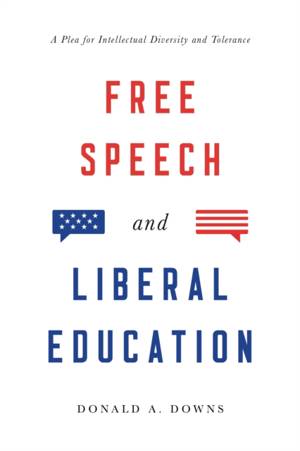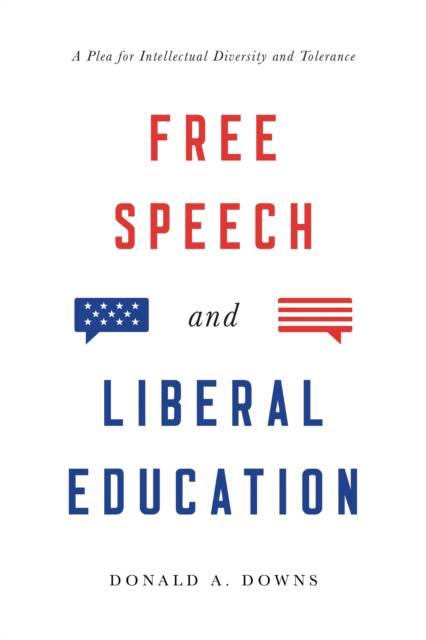
- Retrait gratuit dans votre magasin Club
- 7.000.000 titres dans notre catalogue
- Payer en toute sécurité
- Toujours un magasin près de chez vous
- Retrait gratuit dans votre magasin Club
- 7.000.000 titres dans notre catalogue
- Payer en toute sécurité
- Toujours un magasin près de chez vous
Free Speech and Liberal Education
A Plea for Intellectual Diversity and Tolerance
Donald Alexander DownsDescription
The status of free speech and academic freedom in the nation's colleges and universities has become an explosive issue. Reports of disruptions and dis-invitations of speakers and a host of new speech-inhibiting policies instituted by campus bureaucracies are now commonplace.
Critics claim that these actions and measures have smothered the open and honest discourse inside and outside of the classroom that is so necessary for a meaningful and vibrant education to take place. Others consider the fears of crisis overblown, discerning the harms as less extensive in the vast domain of higher education than critics acknowledge.
Drawing on his extensive research, teaching, and practical experience as a free speech and academic freedom leader at the University of Wisconsin-Madison and nation-wide, Donald A. Downs portrays the university as an "intellectual polis" in which free and honest academic discourse should pervade the campus. His unique approach addresses the experiential, empirical, strategic, and philosophical dimensions at stake.
Free Speech and Liberal Education: A Plea for Intellectual Diversity and Tolerance dissects the nature, extent, and causes of the speech suppression that exists, emphasizing the need for intellectual diversity and how repression often co-exists with counter-forces that need to be energized and mobilized in what Downs portrays as the "embattled" status of academic free speech; the character of the harms the new policies and actions pose to liberal education; broader "structural and societal threats to academic freedom; how to mobilize to protect campus freedom using resources inside and outside of the campus; and, most importantly, why robust free speech and academic freedom are so important to both liberal education and the prospects of liberal democracy.
Spécifications
Parties prenantes
- Auteur(s) :
- Editeur:
Contenu
- Nombre de pages :
- 250
- Langue:
- Anglais
Caractéristiques
- EAN:
- 9781948647649
- Date de parution :
- 25-02-20
- Format:
- Livre relié
- Format numérique:
- Genaaid
- Dimensions :
- 150 mm x 231 mm
- Poids :
- 566 g







